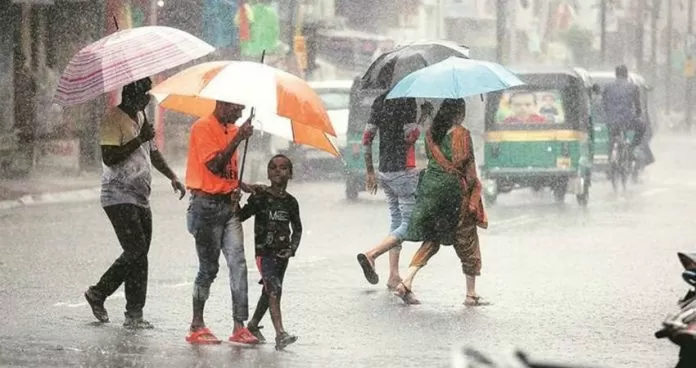Weather Updates: The national capital New Delhi on Monday recorded a minimum temperature of 10.3 degrees Celsius, 3.5 degrees above normal. The air quality in Delhi was in the moderate category at 178 at 9 am.
Weather Updates: India Meteorological Department (IMD) says that North India is going to be hit by a fresh western disturbance from January 4. Due to this, the possibility of rain and snowfall has increased here. IMD said, ‘Western disturbance will affect North-West India from the night of January 4. In such a situation, there may be rain and snowfall in the Western Himalayan region from January 1 to 3.’ The Meteorological Department has also predicted heavy rain and snowfall on January 4 and 5. IMD scientist Soma Sen Roy said that at present the western disturbance has moved away from the North Indian region. Due to this, the cold wave conditions have reduced, which remains only in the Western Himalayan region.
The national capital New Delhi on Monday recorded a minimum temperature of 10.3 degrees Celsius, 3.5 degrees above normal. The air quality in Delhi was in the moderate category at 178 at 9 am. According to data from the SAMEER app, 10 centers recorded the Air Quality Index (AQI) in the poor category, while others recorded it in the moderate category. The IMD has forecast haze and dense fog at most places and dense fog at some places in the morning. The sky is likely to remain clear later, while haze or light fog is expected in the evening and night. The Meteorological Department has forecast the maximum temperature to be around 18 degrees Celsius and the minimum temperature to be around 9 degrees Celsius.
Cold wave continues to cause severe cold
Kashmir’s Gulmarg and Pahalgam are experiencing severe cold due to cold wave and the temperature has dropped several degrees below the freezing point. However, there has been some relief from the cold in other parts of the valley. The Meteorological Department said that the minimum temperature in Gulmarg, a tourist destination famous for skiing activities in North Kashmir, was recorded at minus 10 degrees Celsius, which is 2 degrees less than the previous night. Pahalgam, the base camp for the annual Amarnath Yatra in South Kashmir, recorded a minimum temperature of minus 9.2 degrees Celsius. Last night it was minus 8.5 degrees Celsius. The night temperature in Srinagar was recorded at minus 0.9 degrees Celsius, which is one degree above normal. Currently, the Kashmir Valley is in the grip of ‘Chilla-e-Kalan’. It is considered to be the most difficult period of winter, which started on December 21. The maximum snowfall occurs during the 40-day period of Chilla-e-Kalan.

